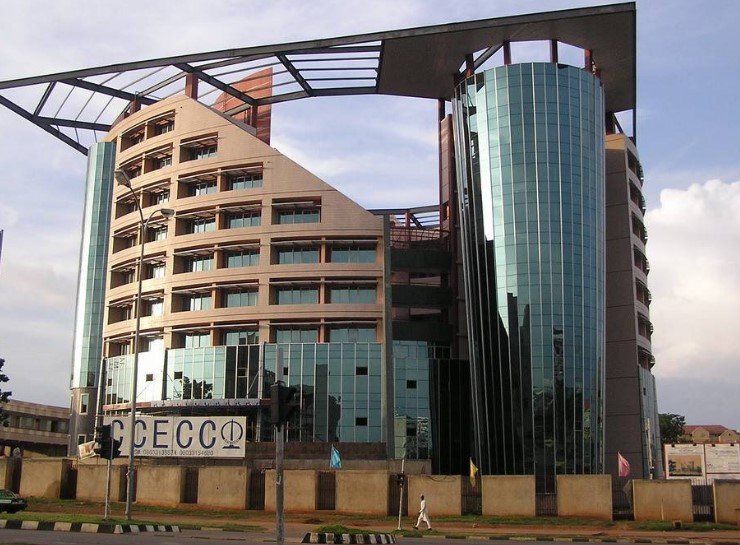The Nigerian Communications Commission has drawn a clear line in the sand: from now on, telecom customers—not telcos—will foot the bill for USSD services, with banks expected to comply.
It’s not just a pricing tweak—it’s a policy that reshuffles the weight of responsibility and resets how mobile banking is funded. Dubbed End User Billing (EUB), the policy follows years of dispute between Nigeria’s banks and telecoms over who pays for those short codes powering everything from fund transfers to balance checks.
How the USSD Standoff Reached Its Breaking Point
Let’s rewind a bit. For years, banks and telecom companies had been locked in a slow-burn tug of war over Unstructured Supplementary Service Data (USSD) charges. These are the codes people dial—*894#, *737#, you know the drill—to do basic banking without internet.
Telecoms said they were providing the pipes and wanted to be paid. Banks weren’t so keen. For a while, the telcos let it slide. Then came warnings, threats, and service disruptions. At one point, over 17 banks were cut off briefly before intervention from the CBN and NCC.
Eventually, everyone came to the table. The result? End User Billing.
What Exactly Is End User Billing and Why Should You Care?
Unlike the old system where telcos billed banks, under EUB, it’s the customers who get charged directly. So, next time you check your GTBank balance via USSD, don’t be surprised if your airtime dips.
This change, the NCC says, is about clarity, accountability, and customer transparency. Here’s what’s on the table:
-
Customers will now see real-time deductions for USSD sessions.
-
Telecom operators no longer need to chase banks for payment.
-
Banks are expected to inform their customers and align their backend to avoid double billing.
One-sentence paragraph alert.
But yeah, you’ll probably end up paying a few more naira to check your account.

The Winners, the Losers, and the Folks Caught in the Middle
Telecom operators, definitely. They get paid directly without playing middleman drama.
Customers? Debatable. Sure, it’s more transparent, but it also means additional airtime charges just to bank.
Banks? Well, they just lost their USSD free ride.
Here’s a quick breakdown to help paint the picture:
| Stakeholder | Old Model (Bank Billing) | New Model (End User Billing) |
|---|---|---|
| Customers | No direct charge on airtime | Airtime gets deducted |
| Banks | Paid telcos per session | No longer responsible |
| Telecom Operators | Billed banks; payment delays | Bill customers instantly |
Let’s face it—no one loves paying more fees. But at least now, you know where it’s going.
Regulatory Backing and the Quiet Power Move
The NCC made its move quietly. The notice appeared on its website with little fanfare, but its implications are huge.
Behind the scenes, this wasn’t just a telecom issue. It was a joint agreement with the Central Bank of Nigeria (CBN). That detail matters. It shows both sectors’ regulators are syncing up. That kind of alignment doesn’t happen every day.
In the statement, the NCC emphasized that the EUB “emerged as a consensus option” and is part of efforts to enhance both “customer experience and transparency.”
One sentence. Pause. Let that land.
Transparency sounds great on paper. But in Nigeria’s volatile economic climate, even minor changes feel big. And trust in digital infrastructure? Still growing.
What This Means for Nigeria’s 70+ Million Banked Mobile Users
According to data from the Nigeria Inter-Bank Settlement System (NIBSS), more than 76 million bank accounts are linked to mobile devices. And a large chunk of these users rely on USSD, especially in rural areas with limited internet.
The shift to EUB means:
-
USSD may become less attractive for low-income users.
-
Banks might push more aggressively for mobile app adoption.
-
Telcos could start bundling USSD offers—think 5 USSD sessions for N20.
This could get interesting real fast.
One-liner for rhythm.
Also, expect customer complaints to spike initially. Any billing hiccup could trigger backlash—and telecoms and banks both know how viral those social media rants can get.
It’s About Control, Not Just Charges
Let’s be real—this move is less about money and more about who calls the shots.
Telcos, for years, have operated in the shadow of banks when it comes to mobile financial services. But with fintech eating up market share and telcos launching wallets, the lines are blurring.
By putting USSD billing into their own hands, telecoms gain:
-
More control over pricing
-
Direct engagement with users
-
Leverage to expand their digital service portfolio
Meanwhile, banks lose a layer of control over the USSD pipeline. That could sting.
One-liner. Because it’s true.
It’s subtle, but this might be a first small crack in the banks’ digital armor.
What’s Next? Watch the Wallet, Watch the Policy
Nobody expects Nigerians to stop using USSD overnight. It’s convenient, offline-friendly, and still trusted in many communities. But how this new billing model plays out will set the tone for broader reforms in mobile payments.
Already, some fintechs like Opay and PalmPay have shifted away from USSD entirely, leaning fully into app-based platforms. Traditional banks might soon follow—if not now, eventually.
There’s also regulatory tension to monitor. If user complaints mount or telcos overstep on charges, expect policy tweaks or even a rollback.
So for now? Pay attention to your airtime. That N6.98 per USSD session is real—and it’s coming from your pocket now.








